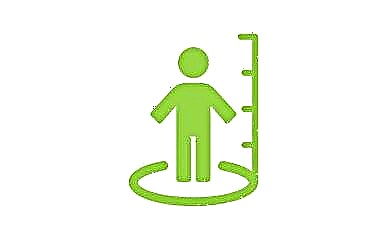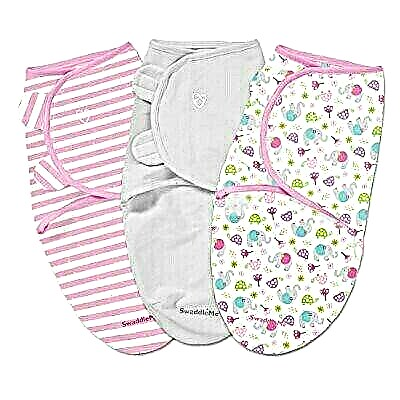The internal systems of the body of a newborn child do not immediately begin to function fully, as they get used to new living conditions. This feature causes problems in infants such as regurgitation and vomiting, which are troublesome for parents. Pediatricians explain to mothers why the baby spits up after each feeding: due to immaturity of the gastrointestinal tract, milk is not completely absorbed, its excess goes out through the mouth.

Spitting up after feeding is common in newborn babies
Features of digestion in newborns
Features of the digestive system of infants are considered a common cause of regurgitation. The stomach of the newborn is still small in volume and shape, the esophagus is thickened and shortened, and the sphincter is weak. Because of this, the reverse flow of the contents of the stomach cannot be restrained, food enters back into the esophagus and is thrown out, that is, reflux occurs. Reflux symptoms bother the baby up to 4-6 months, then the work of the gastrointestinal tract stabilizes, regurgitation passes.
Note! To prevent parents from worrying in vain, children's experts clarify: when belching food no more than twice a day, no special treatment for the baby is required.
Causes of regurgitation during breastfeeding
In pediatric practice, the most common causes, from which the baby pulls out with a fountain after breastfeeding:
- Overeating - appears when the baby is held at the breast for a long time. Some mothers cannot calculate the feeding time, others are trying to prolong the closeness with the baby;
- Aerophagia, or excessive swallowing of air, occurs when the nipple is not properly gripped. Air trapped with milk returns, pushing part of the food out of the stomach;
- Failure to comply with the feeding regimen is frequent or, conversely, rare attachment to the breast. A hungry baby, choking, quickly sucks on the breast and can swallow air, and after a while burp;
- A sharp change in body position after feeding - inexperienced mothers immediately begin to turn the baby over and put it in the crib, although you should first hold the baby upright.
Physiological factors of regurgitation
In addition to the obvious mistakes of adults, there are physiological factors in which an infant can regurgitate. The most common of them is flatulence - the pressure of gases on the abdominal cavity, from which the baby spits up a lot.
Important! In infants, flatulence is often observed with an improper diet of a nursing mother.
Colic is associated with flatulence in both children who are on gv, and in artificial ones. When they appear, the child has difficulty passing gas. The result is pressure in the digestive tract, leading to regurgitation. After emptying the intestines, the condition of the crumbs improves.

Constipation and colic can cause frequent regurgitation in a baby.
Stool disorders such as diarrhea or constipation can also be physiological factors. They arise due to disturbances in the work of the intestines, so the child may first hiccup and then burp.
Pathologies as a cause of regurgitation
Babies tend to spit up naturally. But far from always they lie only in physiology, some pathologies can become them:
- Perinatal encephalopathy is a classic diagnosis that is made with complications during pregnancy or childbirth. Manifested by profuse regurgitation, sleep disturbances, tremors of the limbs;
- Pyloric stenosis or diaphragmatic hernia - gastrointestinal pathology. Food does not go beyond the stomach, only half is processed, the curdled mass is pushed out;
- Lactose intolerance is a lack of an enzyme that breaks down lactose, milk protein. The inability to digest it causes frequent profuse regurgitation and even vomiting in the infant;
- Infectious diseases accompanied by general intoxication. In the selected food masses, there may be mucus impurities, which indicates dysbiosis;
- In premature babies, reflux after each feed can result from underdeveloped central nervous system (CNS).
Regurgitation after formula feeding
In artificial children, regurgitation can occur due to the irregular shape of the nipple or too large a hole in it. As a result, air is swallowed along with the food, and the baby spits up after each feeding.
Sometimes the throwing of food out occurs due to the fact that baby food is incorrectly selected, and the mixture is not suitable for the baby. Before switching to a different mixture, it is worth consulting with your pediatrician.
How to tell the difference between regurgitation and vomiting
Many mothers ask what is the difference between regurgitation and vomiting in babies. Pediatricians differentiate them as follows:
- When regurgitating, the abdominal muscles do not contract, there are no characteristic vomiting spasms. Undigested milk flows out of the mouth in a thin stream;
- Vomiting in a newborn is characterized by cramps in the stomach and the release of a large volume of undigested masses. Bile comes out with food, so the masses acquire a yellowish tint. Often, before vomiting, the baby begins to sweat heavily.
Regurgitation rate for babies

The rate of regurgitation can be determined by its volume and intensity.
When parents ask how to determine the rate, if the child spits up after each feeding, pediatricians suggest using the Scale for assessing the intensity of regurgitation per day:
- less than 5 times - volume less than 3 ml - 1 point;
- more than 5 times - volume 3 ml - 2 points;
- more than 5 times - half of what was eaten, infrequently - 3 points;
- more than 5 times - half of what was eaten, each time after eating - 4 points;
- more than 5 times - most of the food eaten - 5 points.
Important! To independently determine the rate of regurgitation, a mother should know that a deviation from the norm is an intensity of 3 points or more.
Regurgitation frequency
Up to six months, the norm for babies is the frequency of regurgitation up to five times a day in small portions. The main thing is that they are not plentiful and long-lasting.
Some doctors express this opinion: if the baby spits up often, you need to count how many times a day he will urinate. The same amount of both is considered the norm, in which case frequent regurgitation should not bother the parents.
What to do if a baby spits up with a fountain
Sometimes worried mothers don't know what to do when the baby vomits like a fountain after breastfeeding. In this case, it is considered that if vomiting in a baby without a fever is a one-time phenomenon, then there is no reason for concern. Constant profuse reflux with fever requires contact with a pediatrician. The reasons for this phenomenon may be:
- intolerance to the mixture;
- viral infection;
- intoxication.
When a baby vomits with a fountain, the mother can alleviate his condition by the following actions:
- hold it in a column after eating;
- lay on its side;
- give a drink of water.
Note. Sometimes spitting up with a fountain is the result of neurological disorders, so the child should be seen by a specialist.
Spitting up after every feeding
If the baby vomits after each feeding, then this is considered a deviation from the norm. In the rating scale, this intensity is estimated at 4 points, which is the reason for going to the doctor.

Post-feeding posture can help avoid regurgitation
If the child spits up a lot
According to Dr. Komarovsky, when a child spits up a lot, but at the same time develops normally and does not lag behind in weight, this should not bother the parents. Frequent vomiting in an infant can be a sign of a feeding disorder. Profuse regurgitation accompanied by fever and lethargy is a symptom of the disease.
Spits up an hour or two after feeding
Late regurgitation, that is, the baby spits up curdled milk one hour after feeding, is called a "lazy stomach" or dyspepsia. This is a digestive disorder, which manifests itself in violation of the feeding regime, overeating, the introduction of a new product. With dyspepsia, when a newborn spits up an hour after feeding, there are problems with stool, so the help of a doctor is needed.
Spits up water after a while
There are several reasons why a baby can regurgitate water. Among them, the most common:
- Milk in the stomach curdles, looks like curd or whey, which comes out when spitting up. Outwardly, it is transparent and looks like ordinary water;
- Increased salivation is normal and is not considered pathological. It occurs during the period of teething and can pass as regurgitation of water.
How to feed your baby to spit up less
Pediatricians explain that in order for the child to spit up less, you need to adhere to certain rules:
- Put it on the tummy for a few minutes before feeding;
- Control how the baby suckles at the breast, check the position of the body when sucking;
- Use anti-colic pacifiers for artificial children;
- Support the bottle with the mixture at a 40-degree angle;
- Eliminate tight swaddling during feeding;
- Observe the feeding schedule, avoiding overeating.

When feeding with formula, you need to hold the bottle correctly at an angle of 40 degrees
Dangerous symptoms of regurgitation
There are symptoms that require special attention if the newborn vomits after feeding. Of these, the following are especially dangerous for the health of the baby:
- Spitting up with a fountain more than 2 times a day;
- Persistence of symptoms after 6 months;
- Impurities of mucus in the secreted masses;
- Temperature rise at the time of reflux;
- Signs of dehydration (urinating less than ten times a day);
- Lack of weight;
- Allocation of curdled thick with a pungent odor.
Pediatricians consider spitting up as a normal physiological process that does not interfere with the child's life. However, if alarming symptoms are observed, the baby must be shown to the doctor in order to exclude the possibility of illness.



